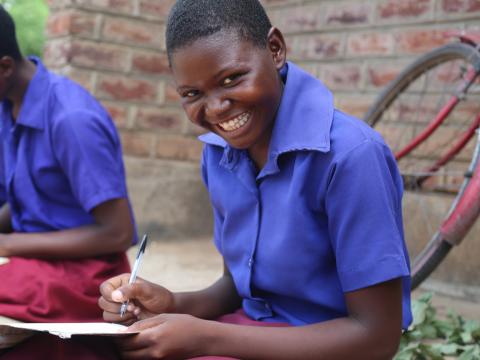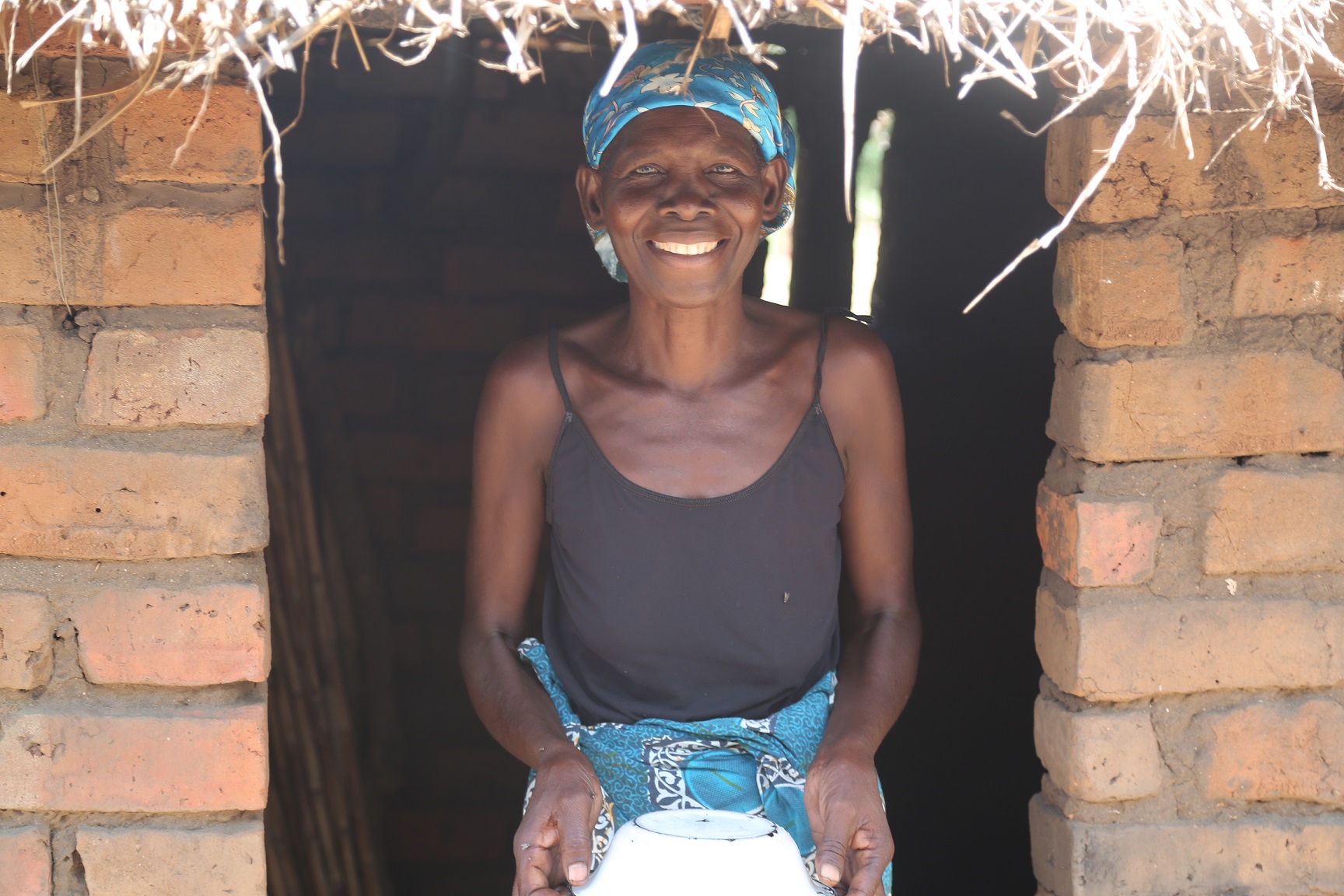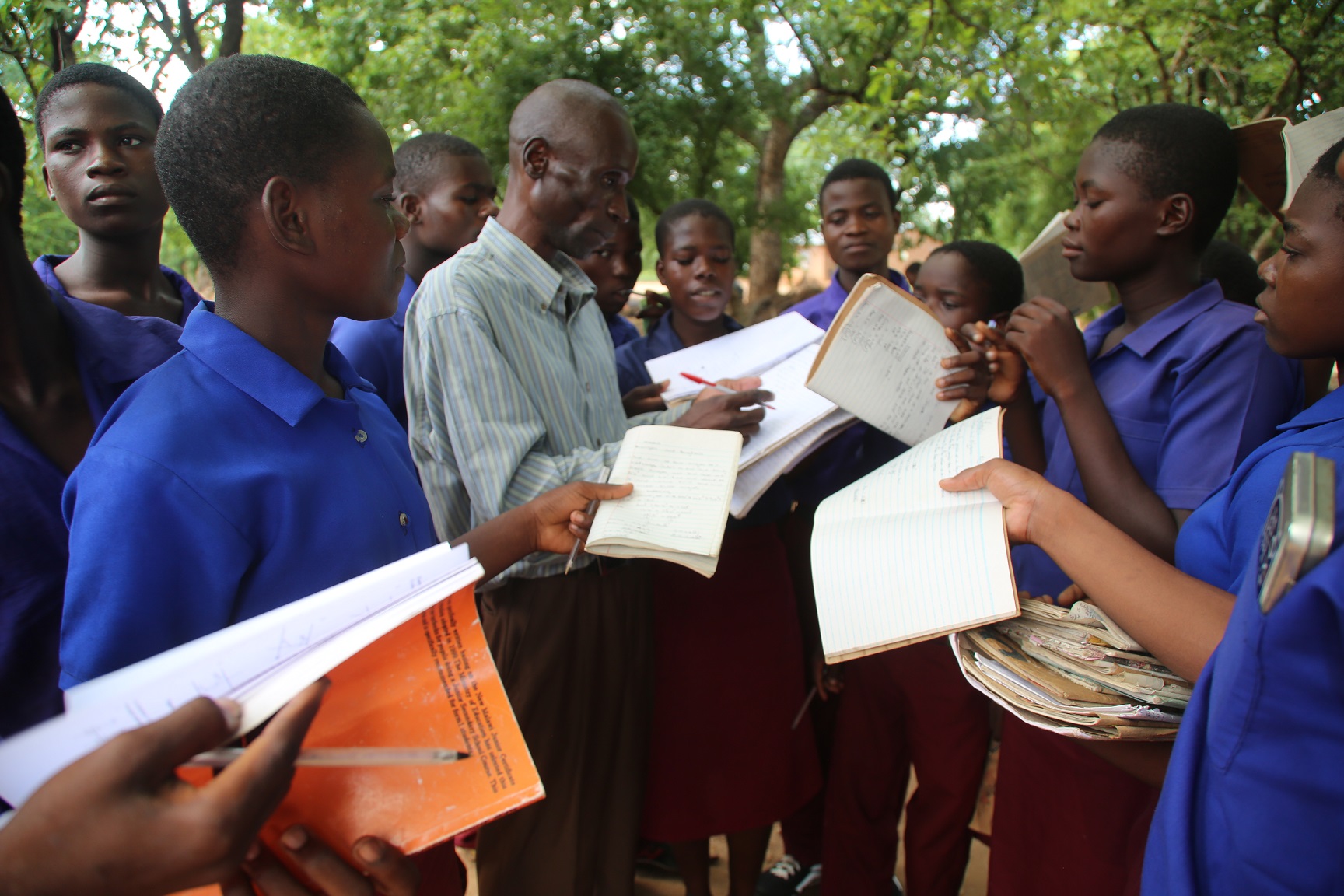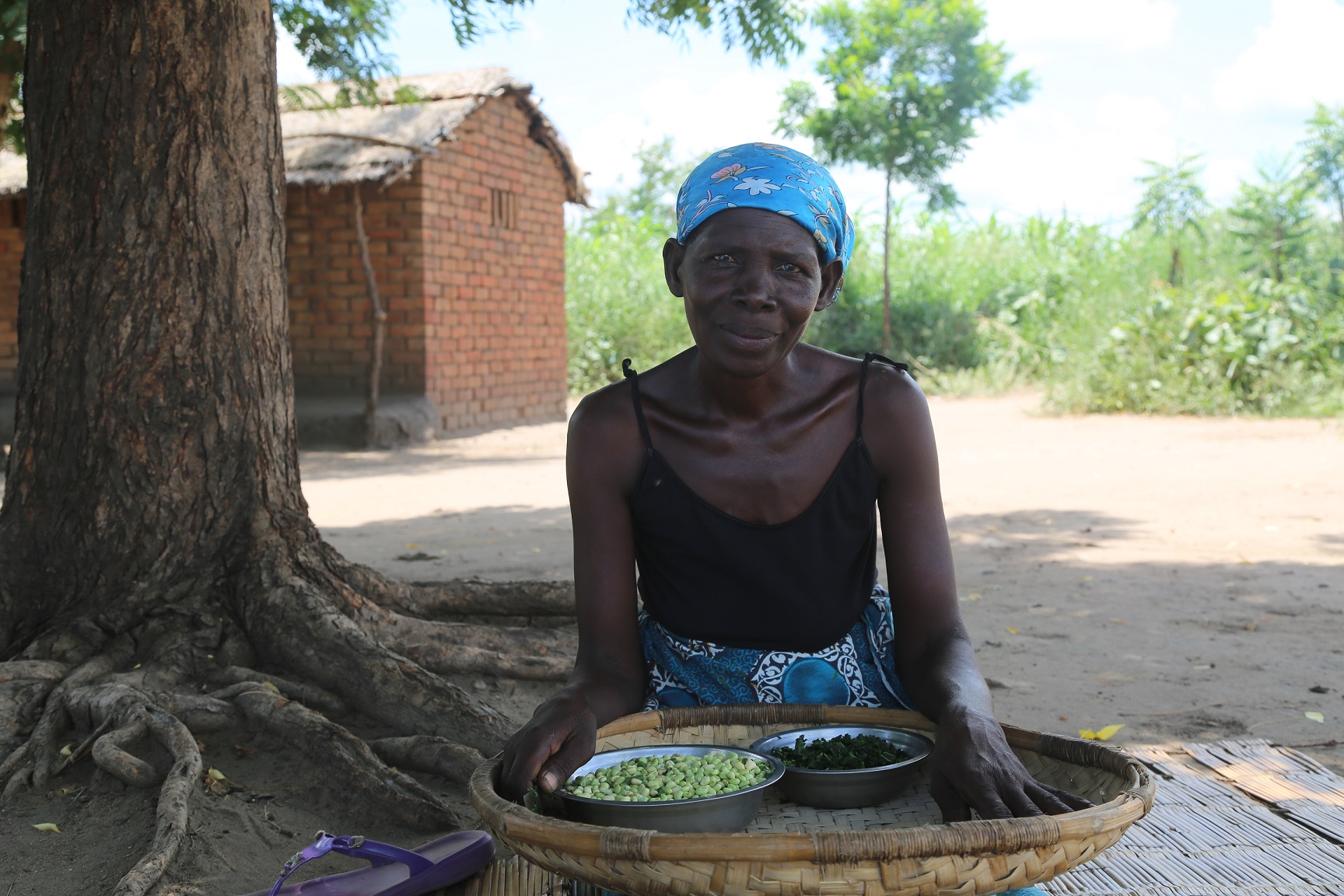Cash and food assistance program in Malawi helps girls stay in school and out of early marriage

Across the hills of Malawi’s popular lower shire region, cows graze along the plains. Overhead, the sun is shines harshly over the dry community. People are returning from their gardens where armyworms have razed down their maize and millet. It does not look like a promising year anymore.
For three years, the region sustained disasters that have triggered food crises. Anne’s husband passed away after a long fight with tuberculosis; a loss she is still in grief. On her isolated iron thatched house, many people consider her a hardworking woman in this village. Seating under the only surviving mango tree on her compound, she slowly peels her pumpkin leaves for today’s lunch.
All across Malawi, people are coming out of an El Nino induced hunger. In the country, hunger is not news anymore. The numbers of affected population in recent years just have risen. Across the country, 6.5 million were in need of support.
For Anne, this hunger threatens the dreams of her daughter Jessy. Carrying her vegetable basket on one side and a box of matches on the other, Anne walks over to her wood fire in a grass-thatched hut where a pot has been on the fire for some time. As the water boiled, she drops the vegetables and covers the pot with a metal lid.
Anne used to stay in Mangochi and moved to Fombe in Chikwawa district when her husband died bringing with her few belongings and 150 kilograms of maize which she had harvested.
She arrived to a crisis that brought by an El Nino-induced dry spell that dried crops. “We harvested very little,” she said. On June, when people are supposed to be eating maize and millet from their gardens, Anne found her older sons and relatives boiling and eating watermelons for breakfast, lunch and supper.
“It was so sad to see my grandchildren eating boiled water melons in June”, she said, taking a pause on her vegetable cutting and looked at her eldest son Michael’s house. Anne has to help them find food. “It was so difficult for us all,” she said.
“I learnt in July that Jessy had passed her high school entry examinations and was selected to a Secondary School in Mangochi,” she said, smiling. “I have to source for school fees, buy her school uniforms and exercise books. It outweighed the joy of the news that she had made the grade”, she added sadly.
Jessy thought her dream would fade from hunger and poverty. Despite hopelessness and uncertainty, Anne was able to facilitate Jessy’s school transfer. She said that Jessy was ambitious, hardworking and good at mathematics and social studies.
When their meagre maize supply ran out, Ann went around the forests picking firewood and selling them for food. A bucket of maize costs1200 kwacha (USD1.6) and would last for two days shared with her grandchildren. “Michael could not manage to feed me and Jessy,” she said. “He has a wife and three children to take care of,” she added.
At this point, World Vision in partnership with the World Food Programme (WFP) came to the families aid through the cash assistance program. The assistance was meant for food such as maize, beans and vegetable oil) but Anne saw use beyond that. Out of the 11,000 kwacha (USD15) she received, 2000 kwacha was used to half Jessy’s school fees at Nthumba Community Day Secondary School (CDSS).
“Mother also bought me exercise books and pens from the money we received in August”, revealed Jessy. She added, “The first term was a bit challenging for me and I did not do well.” Her teacher attributes the performance to her switch from primary to secondary, often experienced by most learners.
Out of over 280 learners, World Vision’s cash and food aid program assisted nearly two thirds of the children. Arnold Tsalayekha, World Vision’s Programmes Manager for the district said the assistance helped children to stay in school, especially girls.
The region has one of Malawi’s highest rates of child marriage, with roughly one out of two girls marrying before age 15, some as young as 12. Tsalayekha worried for many girls forced for early marriage due to the crisis. “With every food crisis, these issues often come out. But it is such a joy for us that where we are working, girls have stayed in school and the classes have been often full”, he said.
Wearing her blue blouse and maroon skirt, Jessy is in her second term of form one. She said that she dreams of becoming a nurse. With the cash and food assistance along with other support programs, World Vision is reaching out to one million of the 6 million people affected by hunger across the country.


